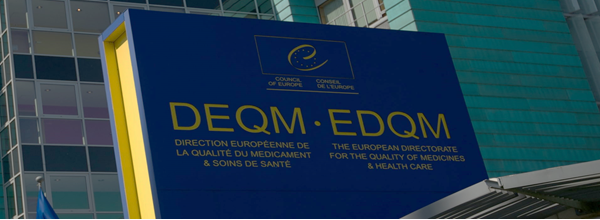Interruptions to the inspection programme of the European Directorate for the Quality of Medicines & HealthCare (EDQM) due to travel restrictions – made necessary by the COVID-19 pandemic – led to the creation of a system of Real-Time Remote Inspections (RTEMIS). This pilot project combines a live video feed, linking inspectors and manufacturing sites of active pharmaceutical ingredients (APIs), and the review of documentary sources, with the objective of monitoring compliance with both Good Manufacturing Practice (GMP) and applications for Certificates of suitability to the monographs of the European Pharmacopoeia (CEPs) in manufacturing sites.
The EDQM inspection programme is an integral part of the CEP procedure and is therefore essential to ensuring the availability of good quality medicines. Because the vast majority of inspections takes place in India and China, the EDQM had to find new ways to continue the GMP evaluation of manufacturing sites, complementing the traditional combination of on-site inspections and documentation-based assessment of companies.
Technical and administrative solutions meeting strict requirements in terms of information confidentiality and security, inspector safety and of course the effectiveness of the site inspection procedure itself were first examined in detail during a feasibility study, then put into practice in a pilot phase with several manufacturing sites in India.
These sites, selected on the basis of their GMP-compliance history and a risk assessment, were invited to participate on a voluntary basis.
The objectives of these initial inspections were achieved: a number of minor and major deficiencies were observed and the Corrective and Preventative Action Plans the companies put in place led to a satisfactory degree in GMP conformity on the remotely inspected sites.
Circumstances and safeguards appropriate for real-time remote inspections are being further examined, but the EDQM considers that real-time remote inspections could be fully integrated into its inspection programme in the future. While this approach cannot replace on-site inspections in terms of value and effectiveness, it does enable inspectors to assess GMP-compliance for companies already having been inspected by the EDQM. Real-time remote inspections could therefore become a third pillar for the supervision of GMP compliance of API manufacturers registered in the EDQM’s CEP scheme.
For more information, see the EDQM’s dedicated web page: “EDQM and real-time remote GMP inspections of API manufacturers during the COVID-19 pandemic: innovation overcoming adversity
The floating traffic jams off ports. The multiplying costs of moving freight. The resulting shortages of goods. All of this had seemed like an unpleasant memory confined to the COVID-19 pandemic. But no such luck!
An ocean container capacity crunch has hit global trade just as peak shipping season starts, with freight spot rates up some 30% over the past few weeks and heading higher.
The first joint Europe-wide assessment of the drivers and impact of chemical pollution by the European Environment Agency (EEA) and the European Chemicals Agency (ECHA) has concluded that, despite progress in some areas, “more work is still needed to reduce the impact of harmful substances on human health and the environment”. Key findings include:
The severe drought which has forced the Panama Canal, one of the world’s busiest trade passages, to limit daily crossings could impact global supply chains during a period of high demand.
In the early hours of March 26, the Singapore-flagged ship Dali, loaded with 5,000 containers, slammed into Baltimore’s Francis Scott Key Bridge, causing the 1.6-mile (2.5-kilometer) bridge to collapse in a matter of seconds. The Dali was departing for Colombo when the disaster struck. Initial fears were confirmed that half a dozen people lost their lives in the accident.
The pharmaceutical and biotechnology industries constantly seek innovative methods to enhance product stability, solubility, bioavailability and ease of use. Within this realm, CDMOs [Contract Development & Manufacturing Organizations] serve as invaluable partners in the development and production of high-quality drug products.
Chinese New Year 2024 is upon us, disrupting logistics from Asia starting Feb 10th. This event is expected to impact global shipping until Feb 21. Freight rates from Asia has skyrocketed with rates to the US surging by 3.5X and Europe by 6X.
Amid ongoing Red Sea diversions by shipping giants like Maersk, CMA, logistics managers are globally confronting a dual challenge of escalating ocean and air freight prices alongside cargo disruptions due to
Why will CM be the next generation on quality?
